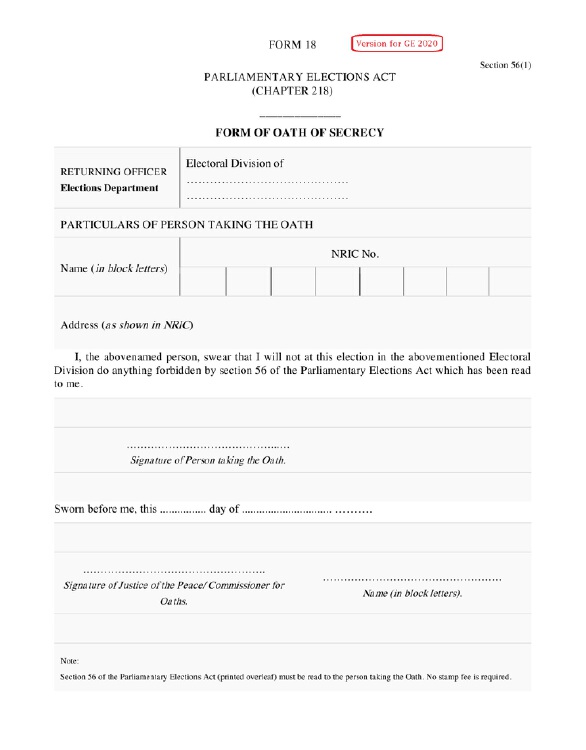The 2024 Singaporean Elections: Assessing The PAP's Continued Dominance

Table of Contents
The PAP's Historical Dominance and its Enduring Strengths
The PAP's political history is intrinsically linked to Singapore's journey from a fledgling nation to a prosperous, modern state. Its one-party dominance, while often debated, has undeniably been a defining characteristic of Singapore's political system. This enduring strength stems from a combination of effective governance and a carefully cultivated sense of national identity and social cohesion.
Effective Governance and Economic Management
The PAP's track record on economic policies and social programs is a cornerstone of its continued support. Its success can be attributed to:
- Strategic Economic Policies: Implementation of export-oriented industrialization, attracting foreign investment, and fostering a business-friendly environment.
- Robust Infrastructure Development: Significant investments in infrastructure, including world-class ports, airports, and public transportation, contributing to economic growth and improved quality of life.
- Comprehensive Social Welfare Programs: Establishment of robust social safety nets, including affordable public housing (HDB flats), subsidized healthcare, and comprehensive education, ensuring social stability and equity.
- Efficient Public Administration: A reputation for efficient and meritocratic public administration, minimizing bureaucratic hurdles and ensuring effective service delivery.
These policies have demonstrably improved the lives of Singaporeans, leading to high standards of living and a strong sense of national pride. The success of the HDB housing program, for example, has provided affordable homes for the majority of Singaporeans, a crucial factor in maintaining social stability.
Strong National Identity and Social Cohesion
The PAP has actively cultivated a strong sense of national identity and social cohesion, effectively managing the country's multicultural society. This is achieved through:
- Emphasis on Racial Harmony: Strict laws and policies promoting racial and religious harmony, actively addressing potential social divisions.
- Promotion of National Service: Mandatory national service fostering a sense of shared national identity and unity amongst Singaporean youths.
- Multiculturalism and Integration Policies: Policies promoting understanding and integration amongst different ethnic and religious groups, creating a cohesive national identity.
- Targeted Social Programs: Social programs designed to uplift less advantaged communities, reducing income inequality and fostering a sense of belonging.
This emphasis on national unity and social cohesion has been instrumental in maintaining public support for the PAP, providing a stable political environment for economic development.
Emerging Challenges and Potential Threats to PAP's Hegemony
While the PAP's dominance is undeniable, several emerging challenges could potentially erode its support base in the 2024 elections. The rise of opposition parties, growing economic inequality, and evolving political priorities amongst younger generations are key factors to consider.
Growing Economic Inequality and Cost of Living
Despite Singapore's economic success, rising income inequality and the cost of living are increasingly concerning issues.
- Housing Affordability: The ongoing debate surrounding housing affordability, particularly for younger generations, is a key concern. Rising property prices and competition for HDB flats put a strain on many Singaporeans.
- Economic Disparity: Growing disparity between the rich and poor, coupled with limited social mobility, fuels dissatisfaction amongst certain segments of the population.
- Healthcare Costs: The rising cost of healthcare, despite government subsidies, poses another significant challenge for many Singaporeans, especially as the population ages.
These issues could lead to disillusionment amongst voters who feel left behind by Singapore's economic progress.
Youth Engagement and Political Participation
The political participation and views of younger voters are evolving, potentially posing a challenge to the PAP's traditional support base.
- Political Apathy: Concerns exist regarding political apathy among Millennials and Generation Z, potentially leading to lower voter turnout.
- Evolving Priorities: Younger voters may prioritize different issues compared to older generations, such as environmental sustainability, social justice, and LGBTQ+ rights.
- Increased Online Political Discourse: The rise of social media and online platforms is changing how young people engage with politics, potentially bypassing traditional media and political narratives.
Understanding and addressing the concerns of young voters will be crucial for the PAP in the 2024 elections.
Key Electoral Issues Shaping the 2024 Singaporean Elections
Several key policy issues are likely to dominate the 2024 election campaign, shaping the political debates and influencing public opinion.
Healthcare and Ageing Population
Singapore's rapidly ageing population poses significant challenges to the sustainability of its healthcare system.
- Healthcare Costs: The rising cost of healthcare and long-term care for the elderly is a major concern.
- Healthcare Access and Quality: Ensuring access to affordable and high-quality healthcare for all, particularly the elderly, is a critical issue.
- Healthcare Workforce Shortages: Addressing potential shortages in healthcare professionals is crucial for maintaining a high standard of care.
Housing and Urban Development
The ongoing debate about housing affordability and sustainable urban planning remains a central issue.
- Public Housing Supply: Balancing the demand for affordable public housing with urban development challenges is a crucial concern.
- Urban Redevelopment and Conservation: Finding a balance between redevelopment and the conservation of Singapore's historical heritage is a delicate issue.
- Public Transport Infrastructure: Continuously improving public transport infrastructure to meet the needs of a growing population is crucial.
Foreign Talent and Immigration Policies
Public sentiment towards immigration policies and the integration of foreign talent continues to be a complex issue.
- Impact on National Identity: Concerns remain about the impact of immigration on Singapore's national identity and social cohesion.
- Wage Competition and Job Displacement: Balancing the need for foreign talent with concerns about wage competition and potential job displacement for local workers is a key challenge.
- Integration of Foreign Workers: Ensuring the smooth integration of foreign workers into Singaporean society is crucial for maintaining social harmony.
Conclusion: The Future of the PAP's Dominance in Singaporean Elections
The 2024 Singaporean elections will be a crucial test of the PAP's continued dominance. While the party enjoys significant strengths, built on decades of effective governance and a strong national identity, emerging challenges relating to economic inequality, youth engagement, and key policy issues such as healthcare and housing affordability cannot be ignored. The ability of the PAP to address these concerns effectively will be a key determinant of its electoral success. The rise of opposition parties and the evolving political landscape also present a significant challenge. Analyzing election results and understanding voter sentiment will be key for all stakeholders. The future of Singaporean politics, and the PAP's role within it, remains an open and fascinating question. Follow updates on the Singaporean elections 2024, participate in informed discussions, and become an informed voter to shape the future of Singaporean politics.

Featured Posts
-
 Druzhba Kupera I Di Kaprio Chto Stalo Prichinoy Razryva
May 04, 2025
Druzhba Kupera I Di Kaprio Chto Stalo Prichinoy Razryva
May 04, 2025 -
 Nhl Highlights Panthers Rally Avalanche Routed By Johnston And Rantanen
May 04, 2025
Nhl Highlights Panthers Rally Avalanche Routed By Johnston And Rantanen
May 04, 2025 -
 Is This Thing On New Photos Show Bradley Cooper Directing Will Arnett In Nyc
May 04, 2025
Is This Thing On New Photos Show Bradley Cooper Directing Will Arnett In Nyc
May 04, 2025 -
 The Count Of Monte Cristo Review A Timeless Classic Revisited
May 04, 2025
The Count Of Monte Cristo Review A Timeless Classic Revisited
May 04, 2025 -
 Open Ais 2024 Event Easier Voice Assistant Creation Tools Unveiled
May 04, 2025
Open Ais 2024 Event Easier Voice Assistant Creation Tools Unveiled
May 04, 2025
